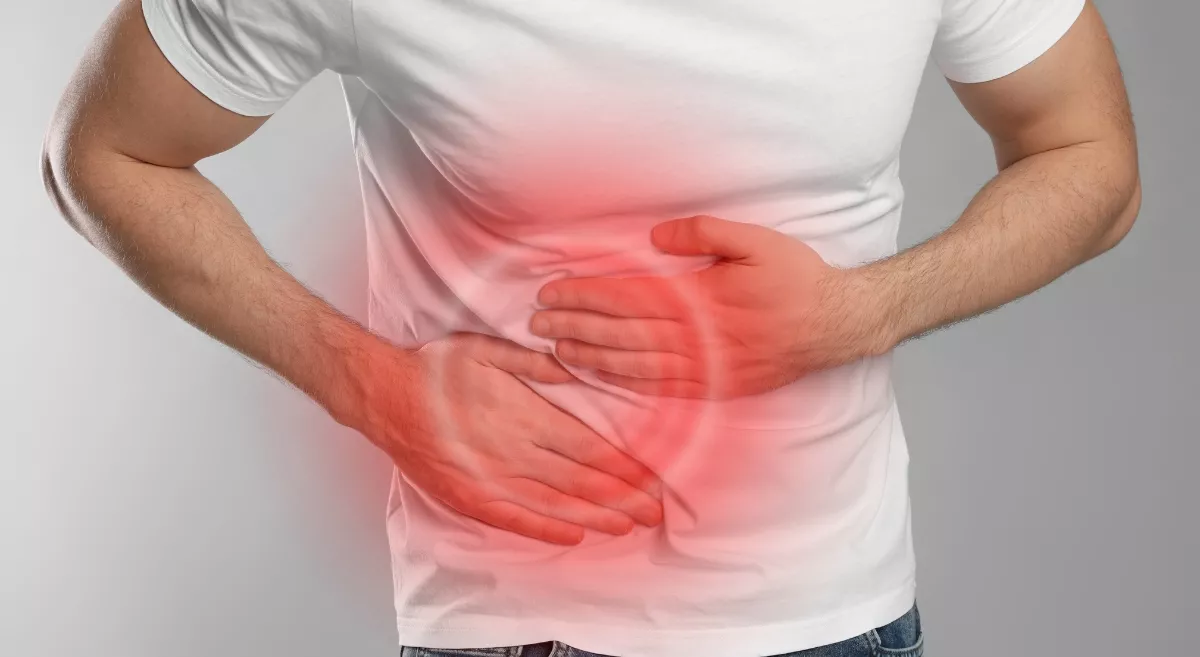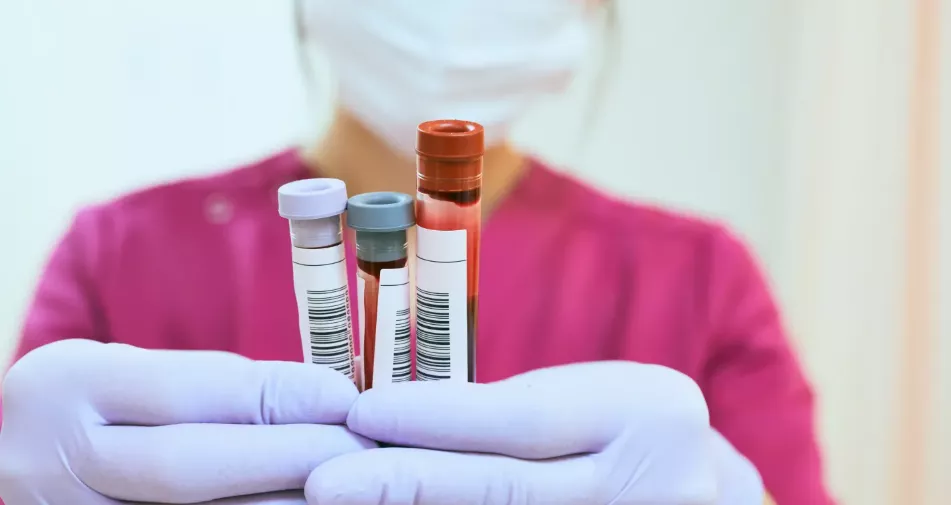You’re having a festive time with yummy meals, and suddenly your stomach hurts? It could be due to indigestion or food poisoning. Food poisoning and indigestion are common digestive issues that can disrupt daily life, affect our health, productivity, and overall well-being. While both conditions stem from issues in the digestive tract, they differ in causes, symptoms, and treatment approaches. This blog will discuss what food poisoning and indigestion are, their causes, symptoms, and effective ways to prevent and manage them.
Is Food Poisoning and Indigestion linked with each other?
Food poisoning happens when we consume food or beverages contaminated with bacteria, viruses, parasites, or toxins. Abdominal dyspepsia, a more general term for indigestion, is commonly used to refer to discomfort in the upper part of the stomach, often caused by dietary choices, overeating, or stress. As for indigestion, even though the condition is not infectious and is milder, it may sometimes be caused by an infection due to food poisoning. For example, if an individual has consumed a virus that causes food poisoning, they might experience indigestion-like symptoms of bloating, nausea, among others, sometimes making it extremely hard to differentiate the two conditions in the initial stages. For persistent digestive issues, visiting a Gastroenterology Hospital in Hebbal Bangalore can provide proper diagnosis and treatment.
What Causes Food Poisoning and Indigestion?
The major Causes of Food Poisoning are:
- Bacteria: Pathogenic bacteria that can cause food poisoning include Salmonella, E. coli, Listeria, among others. They can be found in raw meat that hasn’t been thoroughly cooked, products made from raw milk that haven’t been pasteurized, and other raw foods.
- Viruses and Parasites: Norovirus and other types of viruses and parasites, including Giardia or Cryptosporidium, can contaminate food or water, primarily due to bad hygiene.
- Toxins: Some foods can contain natural toxins, particularly seafood and certain mushrooms. Chemical contaminants from pesticides and other pollutants are also causes of foodborne illnesses.
Causes of Indigestion
- Dietary Triggers: Certain foods, such as spicy, fatty, and acidic foods, can irritate the stomach lining and cause indigestion.
- Lifestyle Factors: Common triggers of indigestion include large meals, smoking, drinking alcohol, and eating too quickly without proper digestion.
- Stress: Psychological or emotional distress can lead to an overproduction of stomach acid, worsening indigestion symptoms.
- Underlying Health Conditions: Chronic indigestion is often caused by gastroesophageal reflux disease (GERD), peptic ulcers, and gallbladder disease. Consulting Gastroenterologists in Hebbal Bangalore can help manage these conditions effectively.
How to Know if it’s Food Poisoning or Indigestion?
Food Poisoning Symptoms
Severe symptoms of food poisoning generally occur several hours after ingesting contaminated food. They include:
- Nausea and vomiting: The body attempts to expel harmful substances.
- Diarrhea: A sign that the intestines are irritated or inflamed by the contaminant.
- Fever and fatigue: Some cases cause fever as the immune system fights off the infection.
- Stomach cramps: Severe abdominal pain results from inflammation of the digestive system.
Indigestion Symptoms
Indigestion symptoms are usually localized to the upper abdomen and are related to how food is digested. They include:
- Bloating and fullness: A sensation of being overly stuffed and bloated.
- Acid reflux or heartburn: A burning sensation due to stomach acid rising up the esophagus.
- Nausea: Sometimes it induces mild nausea shortly after eating.
- Belching and gas: Gas and burping occur as the digestive system struggles with certain foods.
Overlapping Symptoms: Nausea, abdominal pain, and bloating are symptoms that can be common in both food poisoning and indigestion. In mild food poisoning, it may initially feel more like indigestion, with symptoms of bloating and mild nausea.
Prevention and Lifestyle Changes
General Tips to Prevent Both Conditions
- Practice Good Food Hygiene: Wash hands, utensils, and surfaces regularly to prevent cross-contamination and reduce the risk of introducing harmful bacteria into your meals.
- Avoid High-Risk Foods: Foods such as unpasteurized dairy, raw or undercooked meats, and certain seafoods are common sources of bacteria. Avoiding these foods or ensuring they are fully cooked can reduce the risk of food poisoning.
- Moderate Meal Size and Pace: Eating slowly and enjoying moderate portions helps reduce indigestion and allows your digestive system to process food more efficiently.
- Stay Hydrated: Staying hydrated throughout the day ensures that your digestive system has enough water to process nutrients and boost the immune system. Additionally, the risk of food poisoning may increase when toxins in the body accumulate.
- Manage Stress: Since stress is a significant trigger for indigestion, finding ways to reduce or manage stress can improve digestive health. Relaxation techniques like deep breathing, meditation, and exercise can make a difference.
Treatment and Management
Here’s how you can treat Food Poisoning and Indigestion at home:
For food poisoning, hydration and rest are the primary focus. Mild symptoms may be controlled by:
- Drinking Fluids: Water, clear broths, and oral rehydration solutions should be taken to combat dehydration due to vomiting and diarrhea.
- Resting: Allow the body to recover by avoiding stressful activities.
- Eating Bland Foods: Foods such as bananas, rice, applesauce, and toast (the BRAT diet) can help settle the stomach.
For indigestion, lifestyle changes and dietary adjustments are usually sufficient. Over-the-counter antacids can neutralize stomach acid, and for chronic cases, proton pump inhibitors (PPIs) may be prescribed.
When to Seek Medical Help
Seek medical care if symptoms are severe, persistent, or worsen. Food poisoning can cause serious complications, especially if dehydration or infection spreads. Chronic indigestion that causes weight loss, vomiting, or difficulty swallowing requires medical evaluation, as it may be a sign of an underlying serious condition.
Signs to Look For:
- High fever and severe abdominal pain: This might indicate a severe infection or other health condition.
- Blood in stool or vomit: Could be due to a gastrointestinal bleed or severe infection.
- Vomiting and diarrhea that do not stop: These could quickly lead to dehydration and electrolyte imbalance.
Final Thoughts
Food poisoning and indigestion are two uncomfortable but avoidable conditions. Both can be controlled through proper food hygiene and lifestyle changes. Knowing the causes, symptoms, and possible treatments for these digestive problems empowers you to recognize and respond to them quickly. Practicing mindful eating, staying hydrated, and managing stress are the best strategies to avoid indigestion and most cases of food poisoning. However, if symptoms persist or worsen, don't delay seeking advice from a health professional that fits your needs.









